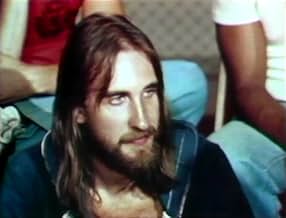Mike Rutherford(II)
- Actor
- Music Department
- Composer
If drummer and singer Phil Collins
became the superstar of Genesis, it
could be said that Mike Rutherford was the secret weapon on their way
to fame, fortune and selling out the world's biggest venues. He wrote
the lyrics for their first major international single, Follow You
Follow Me, which became a UK top ten and a US top 30 hit. He wrote the
lyrics to their second UK top ten single, Turn It On Again, two years
later. In 1985, he formed another successful project, Mike and the
Mechanics. In 1986, Genesis had their greatest success with Invisible
Touch, which featured five international hits, two with lyrics by
Rutherford, Land of Confusion and Throwing It All Away. In 1988, he
created, with B.A. Robertson, the most critically acclaimed song of his
career, The Living Years, which became a huge success for Mike and the
Mechanics, earning an Ivor Novello Award and millions of plays on US
radio.
Rutherford was from a distinguished family. His father was naval officer Captain William Rutherford. He was sent to one of England's top private schools, Charterhouse, where he met future Genesis bandmates Peter Gabriel and Tony Banks. Rutherford was the band's bass and rhythm guitarist, contributing important parts to the sound but taking a back seat to lead guitarist Anthony Phillips (who was soon replaced by Steve Hackett). The band became renowned throughout the 1970s for their elaborate, classically influenced progressive rock, which gained a growing cult fanbase. Gabriel left in 1975 but the band grew in commercial appeal. When Hackett left in 1977, the band decided not to replace him and Rutherford became their sole guitarist on subsequent studio albums. They would soon move away from their status as a cult band and into mainstream success, becoming one of Britain's biggest bands of the 1980s and early 1990s.
In 2014, Rutherford released his autobiography, The Living Years.
Rutherford was from a distinguished family. His father was naval officer Captain William Rutherford. He was sent to one of England's top private schools, Charterhouse, where he met future Genesis bandmates Peter Gabriel and Tony Banks. Rutherford was the band's bass and rhythm guitarist, contributing important parts to the sound but taking a back seat to lead guitarist Anthony Phillips (who was soon replaced by Steve Hackett). The band became renowned throughout the 1970s for their elaborate, classically influenced progressive rock, which gained a growing cult fanbase. Gabriel left in 1975 but the band grew in commercial appeal. When Hackett left in 1977, the band decided not to replace him and Rutherford became their sole guitarist on subsequent studio albums. They would soon move away from their status as a cult band and into mainstream success, becoming one of Britain's biggest bands of the 1980s and early 1990s.
In 2014, Rutherford released his autobiography, The Living Years.



































